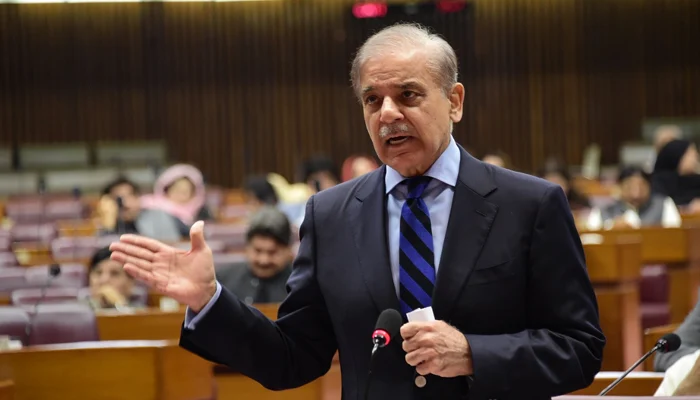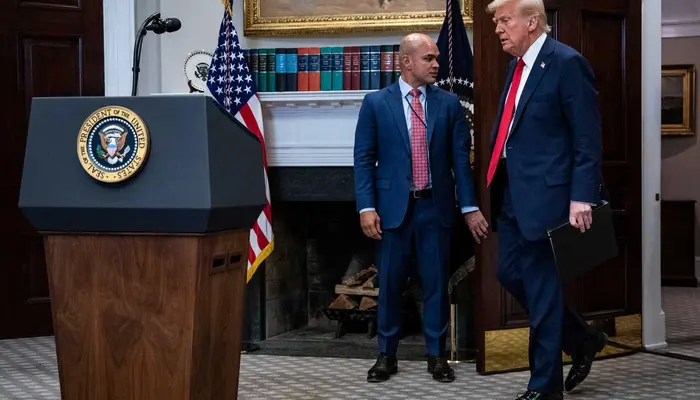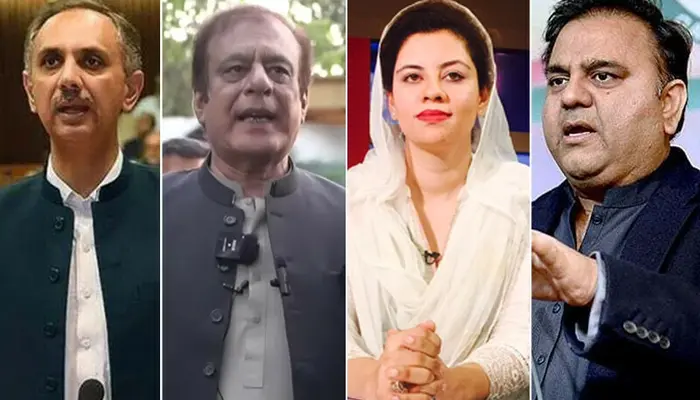
ISLAMABAD: Prime Minister Shehbaz Sharif called Sunday a historic day for Pakistan after the 26th Constitutional Amendment passed in the National Assembly. He highlighted the significance of the event, stating that “parliament reigns supreme.” A total of 225 members, including coalition partners and independent lawmakers, voted in favor of the bill.
The judicial reforms, passed during a late-night session, introduced major changes. The Chief Justice of Pakistan will now be selected by a parliamentary committee with a fixed term of three years. Additionally, a new constitutional bench will be formed. The government managed to secure the required votes with support from independent candidates, while PTI chose not to participate in the voting.
On the floor of the House, PM Shehbaz emphasized that the amendment symbolizes not just a legal change but unity across political lines. He referred to it as “a reaffirmation of solidarity and agreement.” Reflecting on past political turmoil, he criticized “palace conspiracies” that had previously led to the dismissal of governments and prime ministers.
The 26th Amendment introduces key reforms. The Chief Justice’s tenure is now limited to three years. Constitutional benches will be established at the Supreme Court and high courts, with the senior-most judge serving as presiding officer. A parliamentary committee will nominate the new Chief Justice from a panel of the three most senior judges. The name will be forwarded to the Prime Minister, who will then send it to the President for approval. Additionally, the Judicial Commission of Pakistan (JCP), led by the Chief Justice and three senior judges, will oversee the appointment of Supreme Court judges and monitor their performance.
Significant Aspects of the Amendment
One of the most significant aspects of the amendment is the complete eradication of Riba (interest) from the country by January 1, 2028. PM Shehbaz expressed concern over the financial damage caused by past arbitrary decisions, which he claimed cost the national treasury billions.
He also addressed the importance of justice, noting that many Pakistanis are still waiting for fairness. The prime minister remarked that “this amendment will make access to justice easier for the common man,” as cases have dragged on for years, with people losing loved ones while waiting for verdicts.
PM Shehbaz paid tribute to Benazir Bhutto and Nawaz Sharif, recognizing their role in the 2006 Charter of Democracy, which laid the foundation for today’s reforms. He also thanked key political leaders like President Asif Zardari, Bilawal Bhutto-Zardari, Maulana Fazlur Rehman, and other allies for their support in passing the amendment.
Addressing the opposition, PM Shehbaz dismissed any criticism, asserting that the vote was legitimate and not influenced by any “lotas” (turncoats). He expressed regret that PTI did not take part, but emphasized that the amendment represents a victory for Pakistan.
He concluded by thanking the Speaker of the National Assembly and all members who contributed to the amendment’s passage, reaffirming his belief that these reforms will strengthen the country’s future.
Follow us on Google News, Instagram, YouTube, Facebook,Whats App, and TikTok for latest updates















